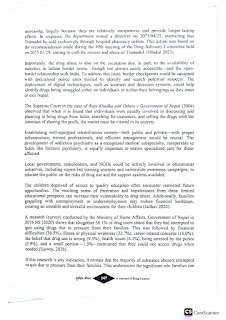Jivesh Jha & Bishnu Chandra Nepali
The Annapurna Express, Nov. 18, 2025)
In today’s world, mobile phones have become more than just a means of talking to one another—they have become an inseparable part of our daily lives. According to the National Census Report of 2022, about 73.2 percent of Nepalis now own a mobile phone, while only 4.5 percent still use a landline. This shift tells an interesting story: nearly three out of every five people in the country have mobile access. It’s a remarkable step toward the vision of a Digital Nepal.
This widespread use of mobile phones has changed how people stay connected. Families, friends and communities can now share information and emotions instantly, bridging physical distances and strengthening social ties. Mobile phones have become tools of connection.
However, the same technology that keeps us connected also plays a key role in crime investigation. With mobile phones nearly in every hand, police and other law enforcement agencies have found new ways to track down suspects and gather evidence of crime.
The Call Detail Records (CDRs) provide a wealth of information—numbers dialed, call duration and timestamps—that help investigators to find the accused or the victim’s movement, communication patterns and even possible intentions. In many cases, these records become crucial in identifying the sequence of events, the intent, planning and execution of a crime/offense.
Constitutional scenario
The Constitution of Nepal prohibits the enactment of any law or order that undermines fundamental freedoms and constitutional values. Article 19(3) stipulates that the means of communication cannot be obstructed except by law. Article 28 guarantees the right to privacy concerning one’s body, residence, property, documents and communications. The Individuals’ Right to Privacy Act, 2018, under Section 11 and 25, empowers investigating agencies to collect personal information during the investigation of an offense with authorization from a court or some other appropriate authority. This Act seeks to strengthen the right to privacy; however, its provisions clarify that privacy is not absolute and may be restricted during criminal investigations by the police.
Article 20 further provides that no defendant shall be compelled to testify against themselves and that they have the right to be informed of the actions taken against them.
Criminal laws
Though Nepal lacks an independent law specifically governing CDRs, multiple laws—including the Right to Privacy Act, 2075; Narcotic Drugs Act; Telecommunication Act, 2053; and the Electronic Transaction Act, 2063—have provided the legal basis for collecting individuals’ data during criminal investigations.
The Nepal Telecommunications Authority (NTA) directs telecommunication service providers to archive call records for at least one year. The NTA also instructs service providers to furnish CDRs to investigating authorities upon a court order.
Section 10A of the Narcotic Drug (Control) Act, 2033 authorizes investigating agencies to collect phone records and other communication details of any person under investigation. A similar legal provision is found in Section 18 of the Organized Crime (Prevention) Act, 2070, which empowers investigators to obtain communication data for crime control purposes.
The Telecommunications Act, 2053, under Section 19, empowers the government to tap telephones or obtain call details of any individual when deemed necessary under the law.
Further, the Guidelines Relating to Access to Justice (Procedure), 2074, adopted by the Supreme Court of Nepal, entrusts district courts with the authority to regulate the procedure for obtaining call details. Section 4 of the guidelines requires the investigating officer to submit copies of the First Information Report (FIR) or Police Report, along with other relevant documents, when seeking court permission to access a person’s call details. Section 7 provides that the police or any other investigating authority may request the court for access to information such as location, SMS, CDRs, user details, SIM user and location, call-wise location, IP address and internet activity logs, among other details. Section 11 stipulates that the district judge’s decision in this regard shall be final.
In Advocate Baburam Aryal v Government of Nepal (NKP 2074, Part 59, Decision No. 9740), the Supreme Court held that obtaining call or SMS details without legal authorization is unlawful. The court emphasized that while criminal investigations may rely on CDRs, such actions must strictly adhere to the procedures prescribed by law and order.
Section 297 of the National Criminal Code, 2017 prohibits the interception or recording of another person’s telephone conversation without proper authorization or consent. Violation of this provision is punishable by up to two years’ imprisonment or a fine of up to NPR 20,000 or both. Section 299 prohibits deceitful telephone calls or transmitting messages. It provides that a person who commits such an offense shall be liable to a sentence of imprisonment for a term not exceeding two years or a fine not exceeding twenty thousand rupees or both.
Global precedent
In India, Section 63 of the Bharatiya Sakshya Adhiniyam, 2023 [Indian Evidence Act, 2023] provides that magistrates have the authority to permit or deny the collection of CDR information.
In China, there is no requirement for a judicial order to obtain CDR information. The legal framework does not recognize the concept of a warrant, and security personnel have the authority to detain individuals or demand CDRs directly.
In Japan, CDRs are obtained by investigating agencies only upon the order of judicial officials, ensuring judicial oversight in the process.
Way forward
The CDRs are a valuable tool for understanding networks, as they reveal who called whom, how frequently and for how long. They help uncover criminal networks and associates, playing a crucial role in tracking the whereabouts of suspects, defendants and their accomplices.
Despite their importance, an independent legislation dealing with CDRs is still due in Nepal. There is scope for amending the National Criminal Procedure Code to formally incorporate a mechanism for the lawful collection and use of CDRs in investigations.
https://theannapurnaexpress.com/story/60052/







.jpeg)

.jpeg)






